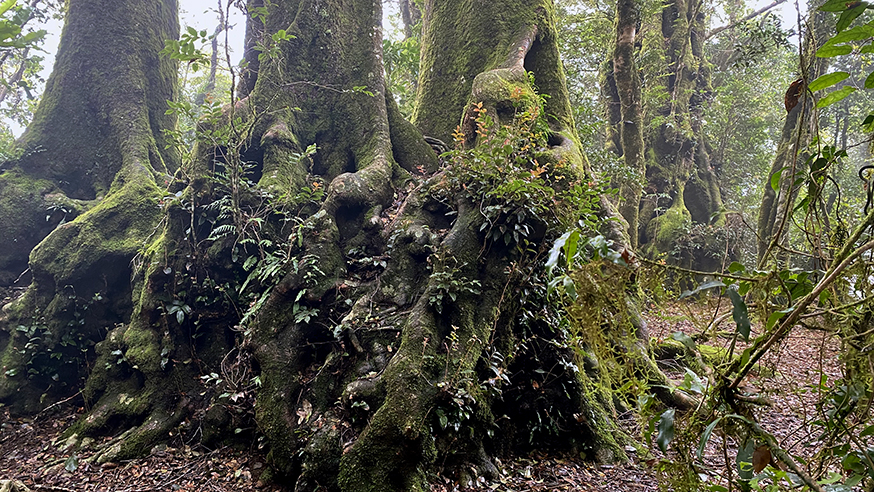
(Images from Springbrook Qld, Jan 23, 2021)
“The genius of Anglican education”
An In-Service on educating in the Anglican Tradition
Teaching Staff,
The Springfield Anglican College
20 Jan 2021
Fr Richard Browning
Following the PD session, the staff shared a whole range of questions. All of them are interesting. I have taken care to respond to a few.
Questions of me
What do you think is the best way to catch a flathead?
What’s your greatest success?
Is there ever a time when you doubt your beliefs?
Why did you stop being a #physio?
Who #inspires you?
If and when, did you question your #faith?
What eventually lead you to your calling – what was the turning point?
What is the story behind your cross around your neck?
How did you learn so much about #Aboriginal culture?
What would you do when you face a situation that turns you #away from God?
How has your learning/exploration of the Indigenous culture change/shift/moulded your beliefs or understandings?
Questions of 'religion'
Why not real bread in communion?
What is the Anglican standing on #evolution and creation?
Why does God come across so #ruthless in some Bible stories?
Why do people judge?
Why does God let children #die?
Is faith everlasting?
Questions of the universe
Questions for the community
How can our classrooms incorporate a greater sense of welcoming?
How do we best educate everyone? (Everyone is a genius but if you ask a fish to climb a tree it will live its life believing it is stupid – Einstein.)
How can I demonstrate faith in the classroom?
How do we become more inclusive?
How can we better implement faith into schools, so students are more engaged and connected?
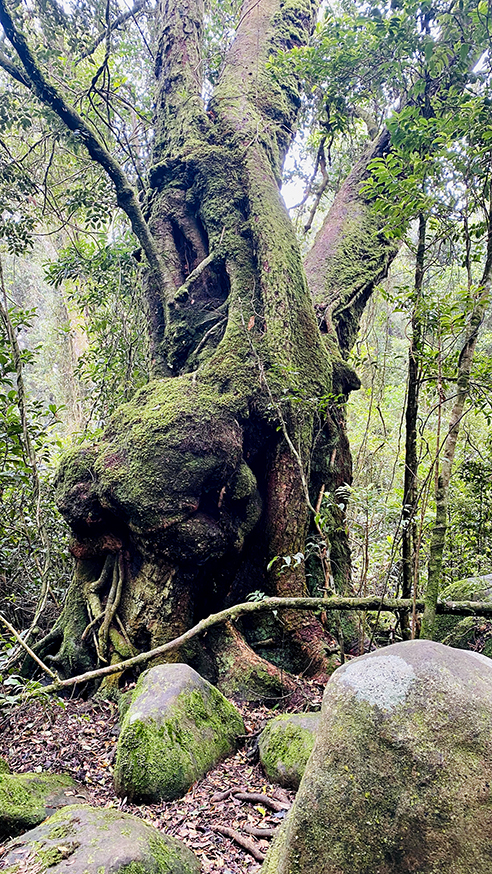
Why a priest and not a physio?
The short answer is God. I had this notion that I needed to be true in my practice to what was real within my body. You know the saying, ‘being true to yourself’. I had a feeling in my stomach that physio was very very close, but not quite 100%. And I didn’t want to be fifty or sixty years old and have spent much of my life doing something that wasn’t the whole thing I was meant to be doing.
I also felt God hunting me. I was hounded, and those dogs did not wish to tear limbs from my torso, but to lick me all over. I just wasn’t sure of that at the time though. It wasn’t anything other than loving, but I still felt hounded. So I ran. And in running, I got tired.
I practiced physio throughout my theological study. I volunteered for QPASTT which provided care for survivors of torture and trauma. I have never stopped looking with an eye for form and function, weakness, tightness, pain. And if there was ever a sense that priesthood was less than satisfying, I’d drop it in a heartbeat and return to physio in a flash.
It just turns out that being paid to tell stories, being invited into the life of real people, holding up the eternal love of God and redemptive power of the risen Jesus, is a profoundly rich and rewarding way of being truly myself and truly free.
So here I am, Anglican priest.
Who inspires you?
The thirteen year old girl teaching younger students in Gaza in the midst of COVID lockdown.
Lamumba and the liberation that comes when a person discovers their own story and lives into it.
Sandra King, Quandamooka woman and extraordinary human being who has increasingly become what she always was, a person with a heritage born in the sands of Straddie and with roots that trace back to first human migration tens of thousands of year ago.
Melinda (my wife).
My sons.
Anyone who lives into the ordinariness, fullness and beauty of their name.
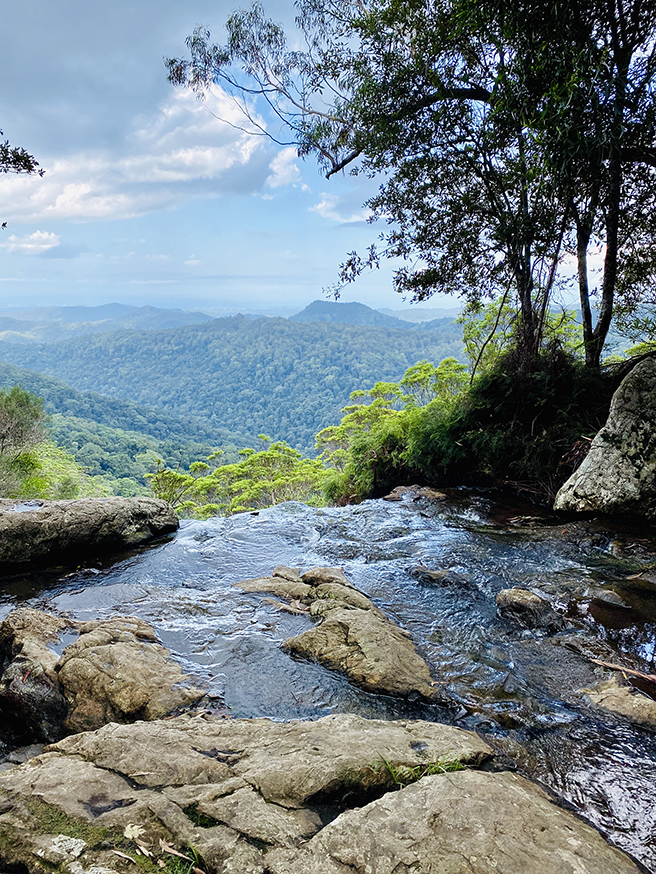
On doubt and faith
Do I doubt?
Often. Always. Still.
Remember, faith implies a gap, a space under which there is no clear or firm ground. The opposite of faith is certainty. Doubt and questions and paradoxes and ambiguity and shadows are all necessary companions to faith.
In my experience, the greatest examples of faith are not Christian’s with edifices so solid as to allow great load bearing trucks to speed across its back and traverse a cavern. I have come to honour those whose faith is more like the whisp of a single spider’s thread that is still asked to carry the greatest burden across the cavern. And the thread is the only thing left. And it is trusted. And it proves enough.
Consider courage. Courage does not imply the absence of fear. Indeed, all the conditions that generate fear remain, it is just that there is sufficient fire in the heart – courage – that allows a person to act in the face of that fear and receive the impending consequences and cost.
So too faith. There is no certainty. There is reason to trust, but the eyes that see are not on our face but in our hearts. In light of the gap, faith is the sufficient fire in the heart that allows a bold stepping out.
I think nuancing our understanding of faith can help. Brian McLaren’s stages of faith is helpful. His book is ‘Faith after doubt’. An excellent podcast about it can be found at https://theeternalcurrentpodcast.libsyn.com/ Season 1, episode 38:
Stage 1: Simplicity
Traits: simple binaries of black white, insider outsider, yes no, us them, safe dangerous.
Strong patterns of belief.
+ves: Certainty leads to strong followers, joy of being right
-ves: rigid thinking makes it difficult to let go of certainties and grow into new insights, strong following can also lead to strong ‘fighting’ for the cause
Complexity
Traits: Open to complexity, increased questioning, living to make things work, age of pragmatism, developed skill of scepticism
+ves: keen to learn, very productive, curious, energised
-ves: tend to be driven, shallow, highly effective but not always ‘succeeding’ at what matters
Perplexity
Traits: Questioning of everything, including one’s own assumptions; working actively to break down all biases; can be lost with the conundrum: “have eyes open and be miserable or keep your head in sand, be ‘happy’ but also ignorant/stupid”
+ves: really cares for justice, huge increase in moral sensitivity
-ves: very hard for people in stage 3 to join any group or be committed, has a significant lack of trust in any ‘institution’
Harmony
Traits: capable of holding together opposing truths in tension, can live with paradox and ‘un-knowing’; integrates things from across the journey; integrates learning, hold things without needing to control; able to love even across differences; enfolds searching and living into a life of compassion and arrives back at a new simplicity:
“We are all doing our best here”
Note:
Each stage has a teaching to impart. One stage allows the next to emerge. Arriving at ‘harmony’ does not mean smugness and a new certainty. It means a new simplicity and a new iterative journey in one’s faith and a movement again through the stages.
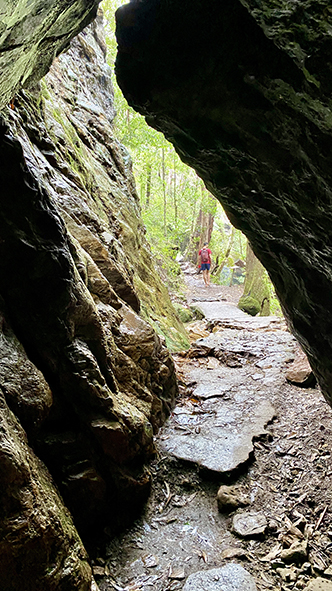
How did you learn so much about Aboriginal culture?
I am not so sure that I do know a lot about First Nations’ culture.
But why have I sought to learn?
… because it is the oldest living, continuous culture on the planet; because if you imagined ‘retirement’ it would focus around family, culture, music, fishing and being in nature, and this is how Aboriginal and Torres Strait Islander people lived, peaceably, for millennia; because if a mark of Anglicanism is incarnational, then we have to be at peace on the land upon which we find ourselves, its people, history, language, culture; because we go overseas and experience other cultures and at first blush are oblivious to the extraordinary cultures that have been home on this land for tens of thousands of years.
… because the culture we are immersed in has a value for a tree, but that value is only realised when it is cut down. And because we have entered into the terminal stages of a profound and real ecological crisis that requires new ways of imagining value and meaning and matter and relationships it must be acknowledge that our First Nations brothers and sisters from across the world have a wisdom that is necessarily a part of the solution.
… because something truly remarkable lives in this continent that helps understand the Christian faith. That is, though there were hundreds of nations, there was a way in which human beings could co-exist with predictability and abundance, without catastrophic violent rupture with an environment shaped profoundly by culture and agriculture. And across this, there is a unifying understanding of ‘Dreaming’ and that lines crisscross the continent and traverse nations and languages and ecosystems and these lines are songs that can be heard and when listened to knowledge and passage and security is known. There is so so much here that can inform the people of the book who understand God dreams and speaks and the language in which the whole of creation is made has a name and was born of a woman called Mary. I find the practice of ceremony, body painting, art, dance, song and songlines to be profoundly instructive with deep resonances with the Gospel and our foundational stories.
… or simply because it is a matter of justice. The First Nations’ peoples of this broad flat land were systematically uprooted, hunted and removed. There has been a longstanding, concerted attempt at annihilation, beginning with the crime of terra nullius, the sidelining of common law with the unchallenged appropriation of new lands as ‘Crown Land’. I have a responsibility to know what happened, to know where I live and to get to know the keepers of the stories that are kept within the land, waterways and sky.
What would you do when you face a situation that turns you away from God?
The short answer is I don’t know.
If when I was younger an army invaded, herded my village into a barn and set it alight (Simon Wiesenthal and ‘Sunflower’), I think I would be faced with a cataclysmic assault on everything I knew, including the nature of the human being itself.
Or what if unspeakable things happen to me as young server in the church? This would have a devastating effect on my life, my soul, my outlook on life, humanity, the church, God.
Would I turn from God? I don’t know. I just don’t know.
I have encountered enormous witnesses to faith. Like the young mother who did not have a particularly deep relationship with the church or Christianity but went through her dying days with a single, silken thread of faith that God was the other side.
Or in Timor-Leste, I have encountered people who experienced the fierce hand of brutality on an epic scale, including rape and murder, villages were destroyed and leaders exterminated and yet this same people remain humble, gentle, forgiving, even of their invaders. And faithful. Remarkably faithful.
This kind of faith is possible. Am I capable of this kind of faith?
I dare not invite being tested, and pray that I might be saved from such a time of trial, but should I be, I would want to remain faithful. At this point I think of Job and some of our ancient wisdom captured in the Psalms. With one hand I would shout and curse and reject God. With the other I would cling to God like there was nowhere else to go.
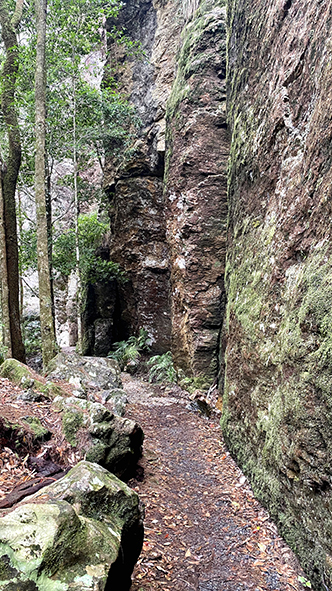
What is the Anglican standing on evolution and creation?
This question is interesting, for it assumes there is a problem. There are many many different ways of knowing. Science is a way of knowing about the material world and we use science to regulate our expectations about the world. The shape of the plane’s wing can create enough lift to carry a heavy cage in the sky, so too the strength of the cable will hold the bridge or the contents of the vaccine will trigger a certain protective response. But there are other ways of knowing. Music and poetry are different ways of knowing.
Faith is a particular way of knowing.
If there is a problem, it might be found with the stories encountered in the first eight chapters of Genesis. The best way to let these stories speak is to let them enter our bodies. These stories are not accounts of what happened. They are stories about what happens. They hide truth in plain sight and allow us to encounter realities that are hidden from ourselves. The genre is called myth and this is where our ancients kept the knowledge about whose we are and why we are here. In my own faith journey I find myself drawing down even more deeply on these sacred stories for wisdom and insight.
Remember, in the Anglican tradition, we are never afraid of questions, we are never worried about protecting or saving God. If God needs protecting, then it is not God we are serving nor indeed saving. We can explore the world with confidence and learn and explore its laws. This is one of the gifts of monotheism to the world – the world is ordered, there is not a spirit behind every tree and rock and the laws of the world can be explored, discovered and tested.
There are so many wonderful examples to explore. A recent one comes in conversation with Richard Fidler. The logical questioning, the scientific reasoning, the methodical exploration of an hypothesis related to ‘other life out there’ and the wondering questions that follow let alone the scientific developments is spell binding. In the midst of all these things, there is plenty of room to explore ‘what does it mean to be human’, ‘how are we meant to live’, ‘what do we do with what we know’?
Why does God come across as ruthless in some bible stories?
This is a great if troubling question.
Can I offer some other Questions:
What person would gladly rejoice in the eternal conscious suffering of another?
What person would ask a small child to be cognisant of consequences and implications only a mature adult could possibly be awake to and yet hold that young child accountable to their infantile responses for the entirety of their life?
What person could pour fuel on another and set it alight, to burn perpetually?
I know no such person. And if God is in anyway inclined to these kind of ‘outcomes’, then what would make God worthy of worship?
There is a great phrase by Brian Zahnd and others that goes something like: God is like Jesus. God has always been like Jesus. There has never been a time when God was not like Jesus. We haven’t always known this, but now we do.
What that means is that every single passage of scripture should be read against the other, and all of them should be read against the image and person of Jesus. Jesus is the fundamental lens through which meaning must be derived: the servant who was faithful unto death, the crucified story-teller executed among criminals, the teacher who took a towel, the Lord whose chief emblem is bread and whose motif is the slain lamb. This is the lens through which the scriptures make sense.
And why would such texts exist in the first place? If the scriptures describe the extraordinary journey of human beings entering into consciousness and in the dawning of consciousness we encounter ourselves and the force that lies beyond the thunder and the stars, it must not surprise that the scriptures themselves reflect the trajectory of this journey. This is the root of the phrase ‘we haven’t always known this, but now we do’.
The quickest route to this is John’s Gospel. Take the whole book, but chapter one is almost enough: “in the beginning was the Word and the Word was with God and the Word was God”.
Remember. God’s name as revealed in our scriptures in Trinity. The whole of reality is relational. And in the life of God the reality of life is bound.
Also, check out Zahnd’s book, “Sinners in the hands of a loving God”. It’s a cracker.
At this point it might need to be said, that the Word of God is not the Bible. The Word of God is Jesus. And the scriptures point to this Word and indeed contain this Word, but the words are not the Holy One.
And what we have learnt from this Word is that God is light in whom there is no darkness at all. (1 John 1.5)
And maybe to finish, a rough translation from St John of the Cross
“God has only ever spoken one word. This word he has spoken from the beginning and for all eternity. This word is Jesus.”
Why does God let children die?
Yes.
Why?
Again, this is such a profound question, it is dangerous to attempt an answer.
To the questioner I would say, my best response is over coffee and around a table. Not just once but again and again. I would do ten times as much listening as talking. The answer to this impossible question comes not in the words but the silence.
This is not a new question.
If God needs defending, it is not God.
If I have a tidy answer, it is not an answer.
Sometimes I have found myself holding up the person Job (a character in our scriptures). He lost everything and cried out to God. With one hand he cursed and railed against God. With the other hand he reached out to hold onto God for there was nowhere else to go. In the midst of suffering, God is nearest, so reach out with both hands. Curse with one. Cry out for shelter with the other.
How can we let go of hurt?
This is a deeply personal question and it is possibly foolish of me to even attempt to make a response at such a distance from the questioner. I respond as a way of honouring the heart and mind who has posed the question in the first place.
There are counsellors and psychologists and mentors and doctors who can assist in the process. There are friends and elders and parents and family member who all can help. The putting down of hurt for the taking up of healing most commonly
begins when the person has been heard. This requires at least two things: you
have found the right person who can listen; you are ready to share (some of) your
story. Having the resources and strength to begin to share is not a given. It
takes years, sometimes decades. Often the strength comes when the pain has
become too much.
In a theological context, the message of the Gospel is that God is near. And the God
who is near knows pain and suffering. The hands with which God reaches out with
bear the marks of crucifixion, they come with healing and forgiveness. These
are statements of faith I know, but they speak of a process that ultimately
unbinds a person from a past that entraps and opens a future of refreshed
possibilities. It is called forgiveness.
This blog is not the place to go too deeply into forgiveness. All I will say is that I think Desmond Tutu’s aphorism is right, if there is no forgiveness, then there is no
future. Saying this is not about sweeping consequences and the demands of
justice aside. It is simply saying that difficult, slow journey of forgiveness
is a pathway of agency by the victim that first and most importantly releases
the victim from imprisonment.
If the questioner seeks more from me, please reach out and make contact.
How can I be a better human being
Maybe this is the most important question we all should ask ourselves until our final breath.
Some suggestions:
To borrow from Mary Oliver – “Pay attention. Be astonished. Tell about it.”
Borrowing from Jesus: Love and love and love again. Your neighbour. Yourself. The stranger. The enemy. Love God.
Notice. Ask questions. Ask more questions. Act.
A note. Faith in Jesus is not about becoming religious, but human. Following Jesus is first the journey, into fuller humanity.
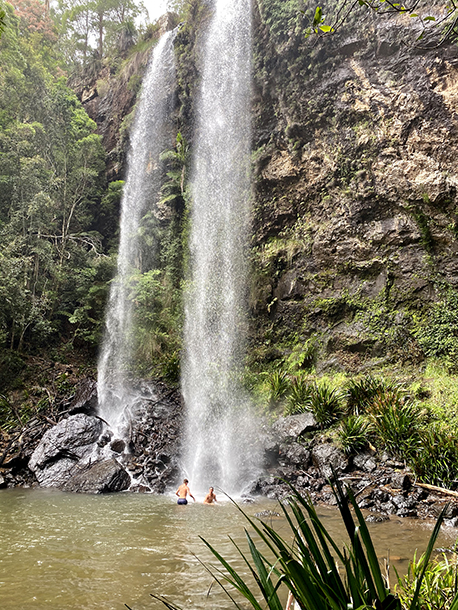
No Comments Yet